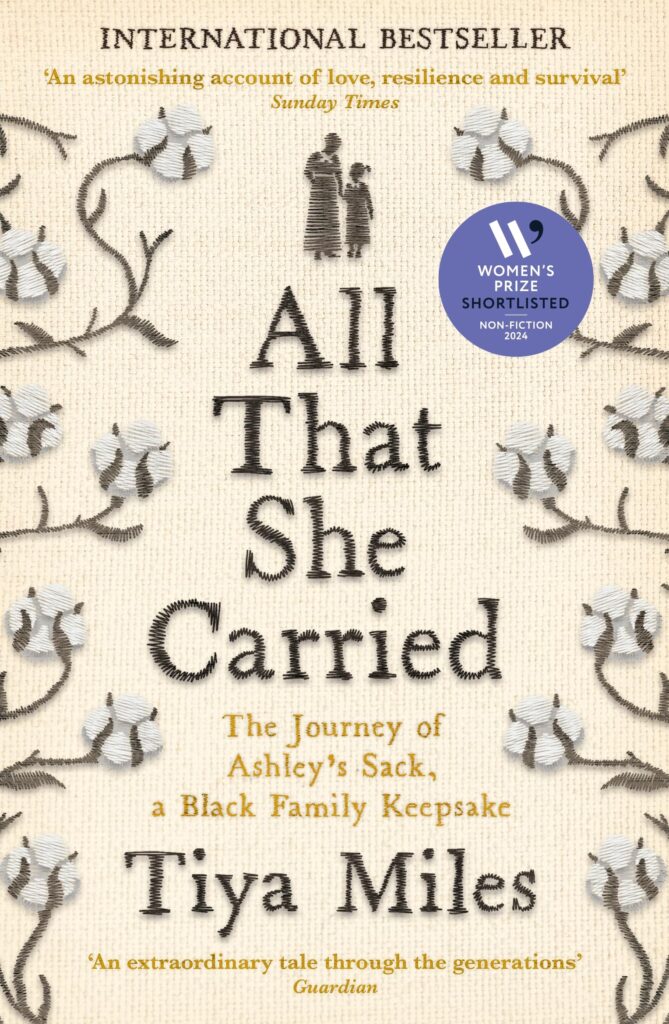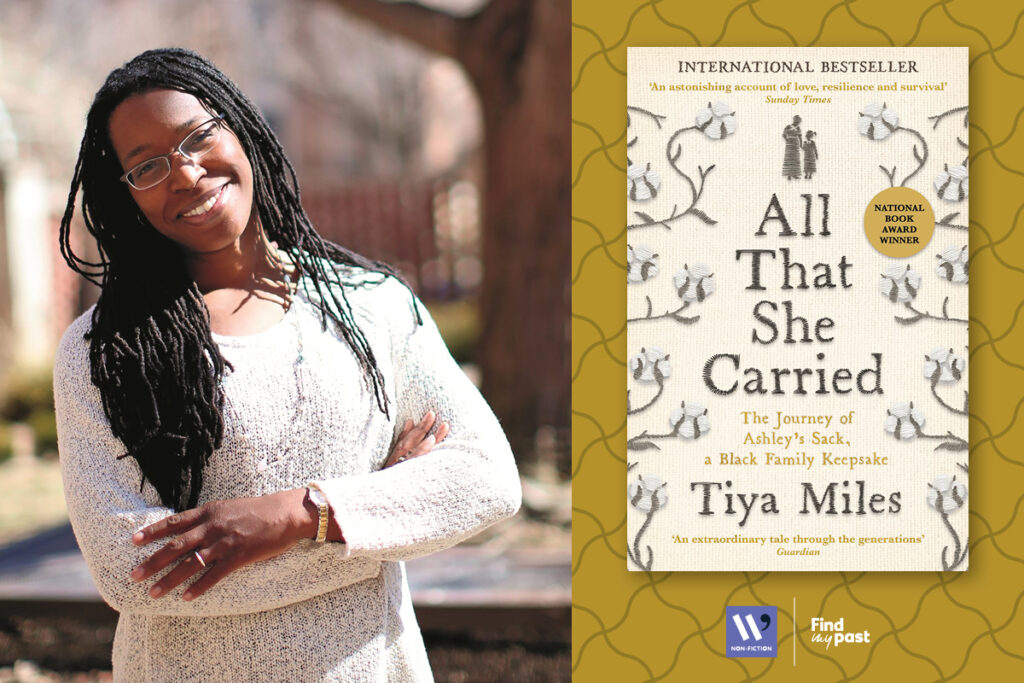All That She Carried: The Journey of Ashley’s Sack, a Black Family Keepsake by Tiya Miles tells the story of Rose, an enslaved woman, who faced a crisis: the imminent sale of her daughter Ashley. Thinking quickly, she packs a cotton bag with a few items. Soon after, the nine-year-old girl was separated from her mother and sold. Decades later, Ashley’s granddaughter Ruth embroidered this family history on the sack in spare, haunting language. This is history as it was lived.
Longlisted for the 2024 Women’s Prize for Non-Fiction, judge Venetia La Manna had this to say about the book: ‘A vital re-telling and re-imagining of stories lost under enslavement. A bold and beautiful book, I loved it.’
To find out more about the book we spoke to Tiya about her writing, research and current reads.

Describe your book in one sentence as if you were telling a friend.
This book tells a sweeping story of American slavery, Black love, familial resilience, and women’s craft by tracing one object – an embroidered bag – passed down through a single line of female kin.
Did you have any revelation moments when writing your book? When the narrative and your objectives all fell into place?
The greatest moment of revelation was my understanding that this book was, at bottom, about love. An exciting moment of research discovery had to do with a more specific element – the history of certain items in the sack: pecans. Before working on this book, I thought pecan trees were native to the Southeast because they are everywhere in that region now and because pecans are sold and enjoyed across the South as a regional food. The embroidery on Ashley’s sack says that Rose packed pecans for Ashley. I learned from food historians that in Rose’s day the pecan was transported from the Texas and Louisiana area (where pecan trees are indigenous and flourish along rivers) to South Carolina. The pecan was therefore a delicacy that graced the tables of Charleston’s wealthy residents and visitors in the antebellum era. I realized, then how remarkable it was that Rose had gotten her hands on a supply of pecans, saved them somewhere, somehow, and packed three handfuls for Ashley before the two were tragically separated.
What is the one thing you’d like a reader to take away from reading your book?
I want them to take away the felt knowledge that love and hope can persist through the darkest of times.
Which other female non-fiction writers inspire you and why? Any particular title?
Laurel Thatcher Ulrich’s history, A Midwife’s Tale, is a book that has inspired me since graduate school. I greatly admire the way she takes a single and sometimes coded source – the personal diary of an early American midwife, Martha Ballard, and draws an entire, complex cultural world out of it.
What is the best piece of writing advice you have ever received?
I love Anne Lamott’s advice in Bird by Bird to move forward inch by inch with your writing even though you cannot see the whole road ahead.
What book is currently on your nightstand?
I am currently reading Lessons for Survival, by Emily Raboteau. This is a collection of personal essays about motherhood, place, and climate.








